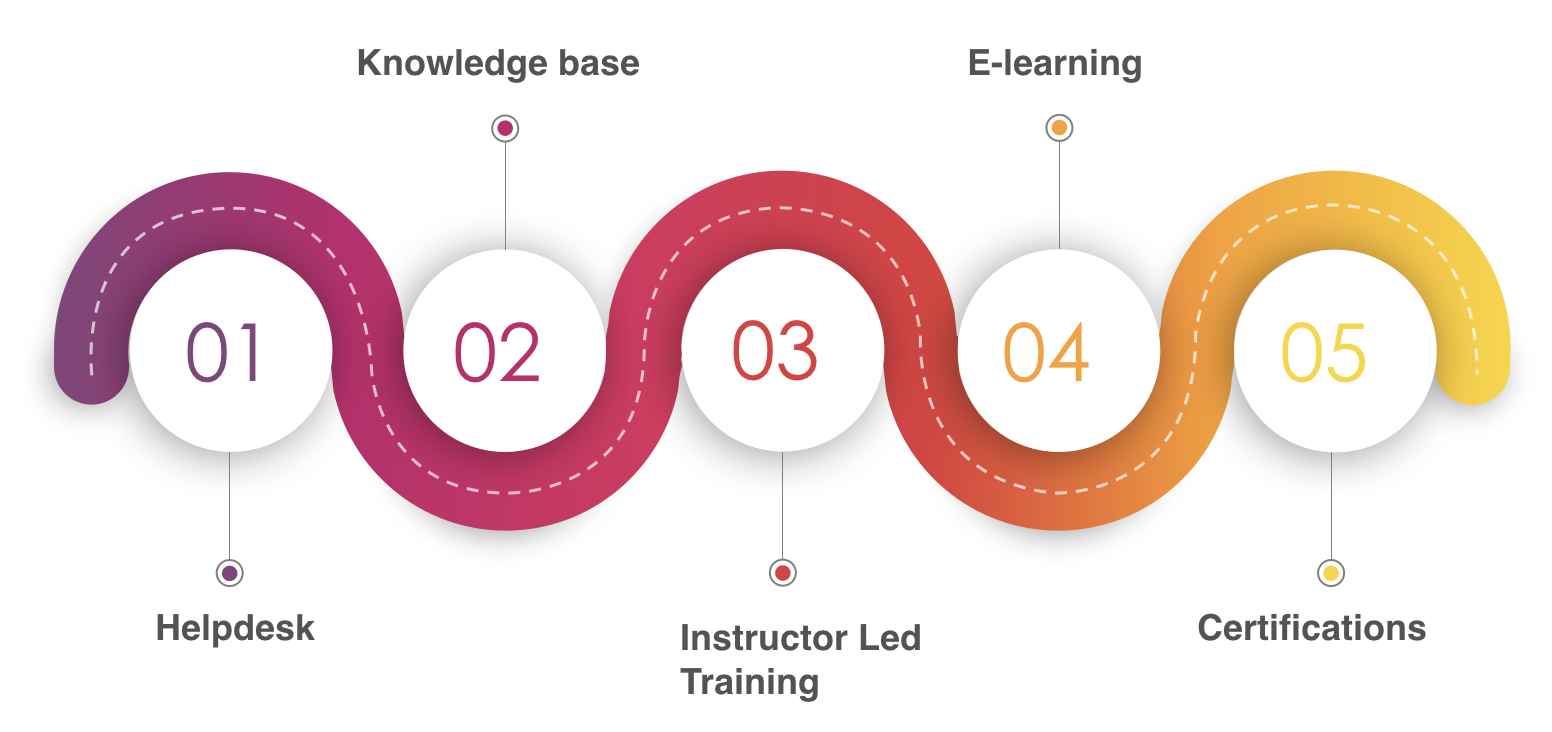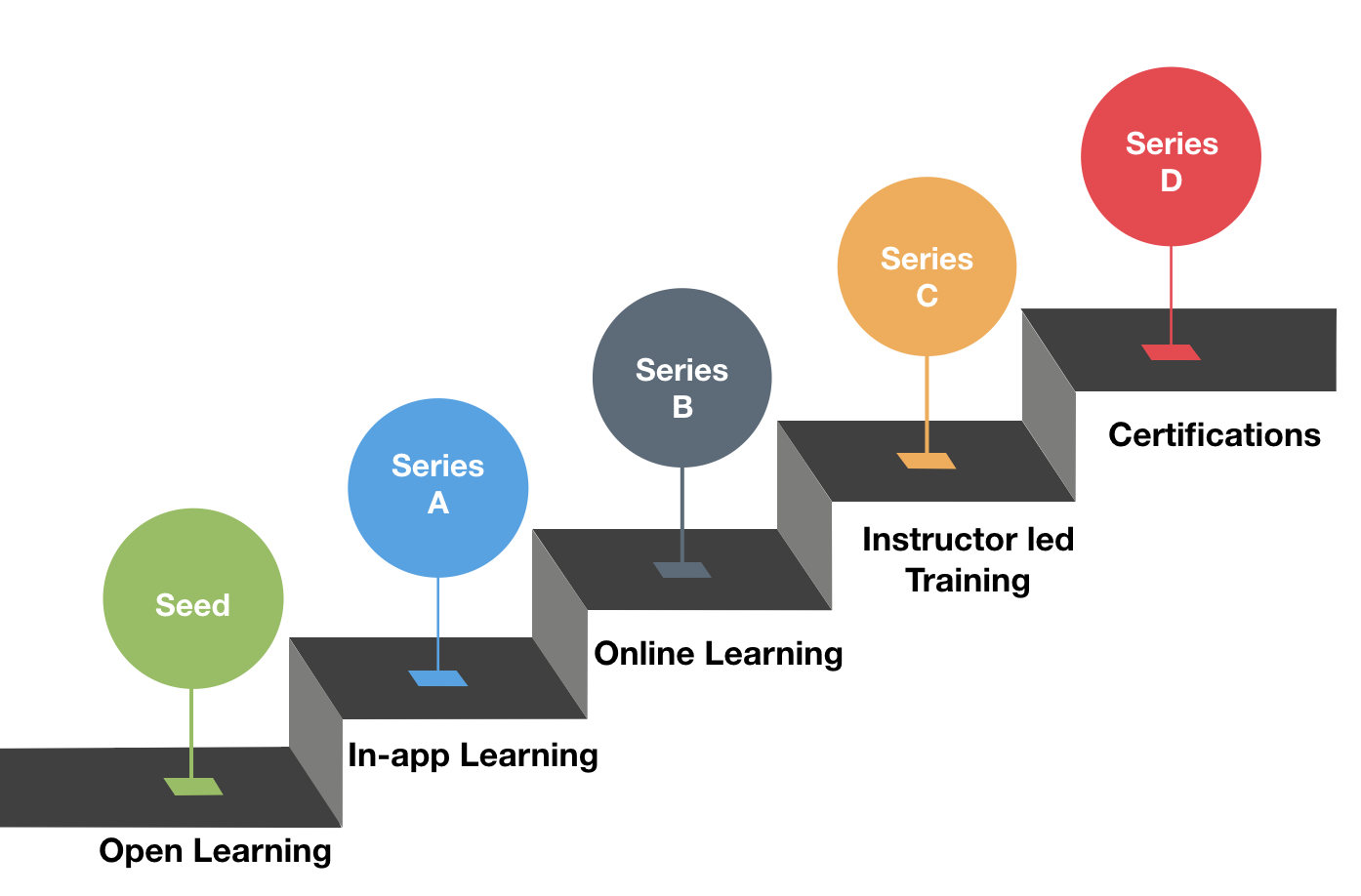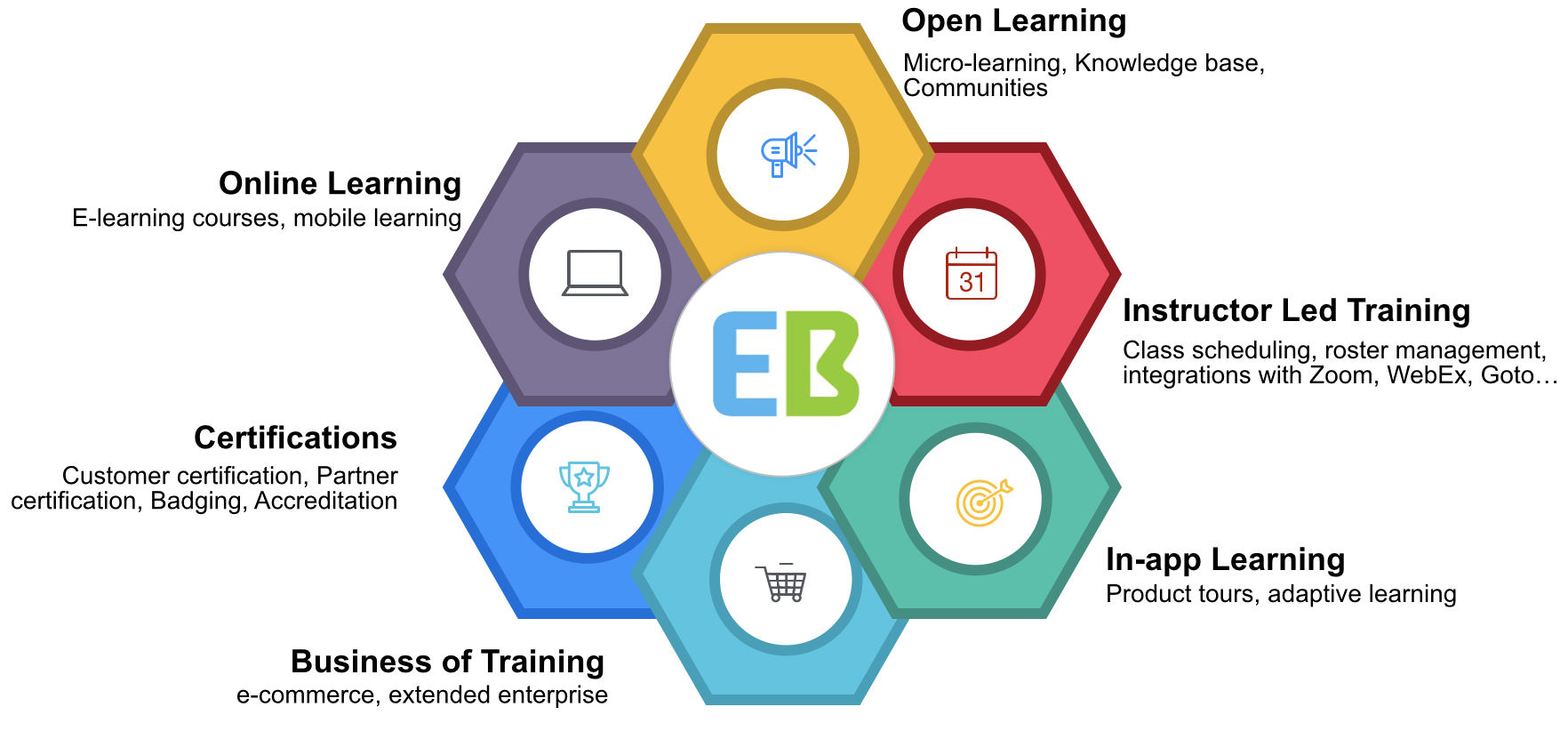LMS for Startups – from Seed to IPO and beyond
LMS with Open Learning like EduBrite, can be a huge enabler for any startup. EduBrite is designed to scale with startup’s needs from Seed to IPO and beyond
Traditionally, Startups and LMSs don’t rhyme well. The needs of startup is to quickly put together highly productive and efficient teams that learns from each other by meeting and talking rather than a corporate environment where HR/On-boarding process kick starts the proceedings. But even startups, however small they are or however early stage they are, have customers who need to be on-boarded and trained. In this post we will discuss how LMS with Open Learning like EduBrite, can be a huge enabler for any startup.

Startups generally begin with a MVP that they introduce to selected customers and collect their feedback and iterate quickly to grow the idea further by directly working with early adopters. In this early phase, customers are treated like an extended team, and product developers directly get involved in training, support and troubleshooting the issues. But if the startup has to evolve from MVP to feature rich product to a platform, there should be an efficiently executed evolution in the customer on-boarding and support.
Most startups begin this process by creating a Support site, with knowledge base and ticketing system. Engineers and product managers write detailed articles about the product in knowledge base and the customers are given access to read thru it before raising the questions in forum or support tickets. But most knowledge base systems are passive, they don’t have much more to offer beyond basic functionality and they soon become a bottleneck to grow the on-boarding system as the startup grows. This is where companies start to look for a dedicated Trainer and once the trainer is onboard, they start looking into offering online instructor led trainings / webinars using the tools like Zoom, WebEx and GotoMeeting/Training/Webinar. But instructor led training is expensive and is not scalable, so they then realize the need for e-learning and LMS.
But it becomes rather late in the evolution already. By this time, product teams would have created a substantial knowledge base which is mostly wiki style categorized articles. Knowledge base owners and Training owners by now have completely different perspective of the kind of systems they need.

Trainers prefer LMS where they can manage e-learning, online and classroom trainings. So they build fresh content in LMSs or using eLearning editors, that doesn’t integrate with Knowledge base and gives rise to a fresh challenge of keeping both systems up to date.
Team at EduBrite has analyzed and experienced this problem for a while. We see numerous software companies (including most LMS companies) are using helpdesk softwares for knowledge base and ticketing (Zendesk, Freshdesk etc), another software for forums (jive, lithium etc), some open source CMS (WordPress) for hosting resources like guides and videos, something like Walkme for product tours and one or more LMSs for trainings.
Very early in our evolution, we integrated our LMS with one of the most popular knowledge base software Atlassian Confluence.
From the beginning, team at EduBrite has viewed all these as different examples of learning needs and we feel Knowledge and Learning are very strongly bonded. We also believe that learning happens at different times and different places and the learning content has to be delivered differently depending on where the delivery is. Very early in our evolution, we integrated our LMS with one of the most popular knowledge base software Atlassian Confluence. But integrated option is just one aspect, even if you are not using Confluence, EduBrite platform includes built in Knowledge base, Forum and Communities, Micro-learning, In app learning, Traditional e-learning / Instructor led training and Certifications capabilities.
For startups, EduBrite offers a very smooth evolution roadmap for adoption of its platform capabilities. It can be seen in the picture below that outlines how to leverage EduBrite at each stage of the startup growth.

Product teams in startups, can initially utilize Open Learning features like Knowledge base and create customer communities using Forum. But they do not have to stop there. Knowledge base can be extended by adding micro learning (bite size content) with short videos and articles on things like troubleshooting, tips and tricks, introduction to new features and step by step tutorials. Will little more integration, In app learning can be utilized to offer contextual FAQ and tours.
Customers can be given opportunities to share their expertise with others rather than having all customer requests answered by the product support. Also, allowing customers to share knowledge base articles and micro learning videos, you can make your products more visible quickly.
By using the integrations with meeting/webinar tools, product teams can conduct their 1×1 training sessions from the beginning on LMS and start leveraging session recordings as the self paced content. Over a period this repository of content will grow therefore content should be meta tagged to make them easily browsable.
When trainers are hired in future, for conducting formal trainings, they get a ready LMS that is well integrated with Knowledge base and repository of already created training content. All they need to do is re-use these materials and create proper chapter wise self paced courses and add quizzes and exams. These self paced courses can be used to award points, badges and certificates. Trainers can also start working on building formal Paid training and certification programs on the same LMS.

Startups don’t need to worry about deploying new systems at different stages of their growth, they can leverage the platform that is designed to scale with their needs from Seed to IPO and beyond.
